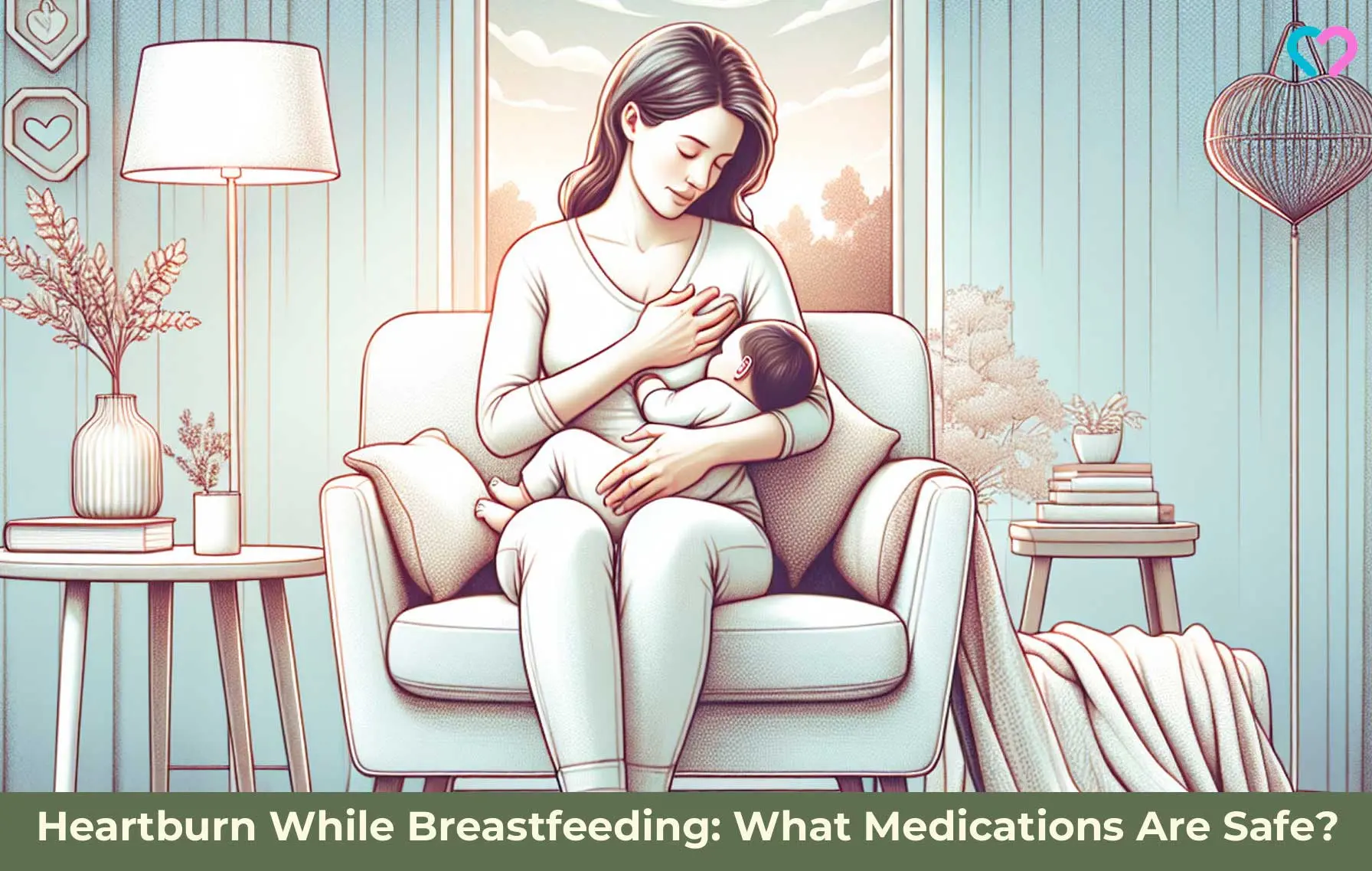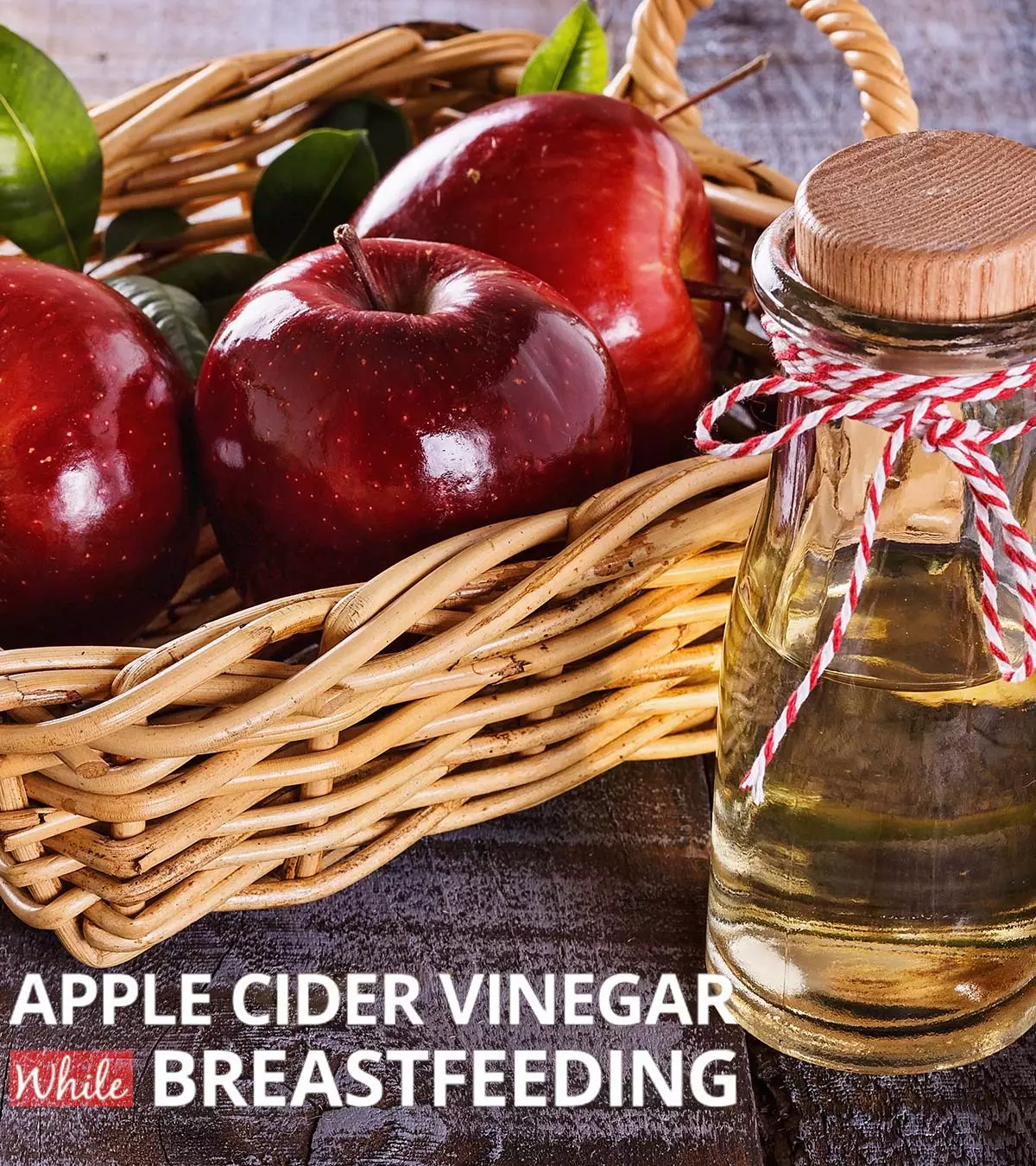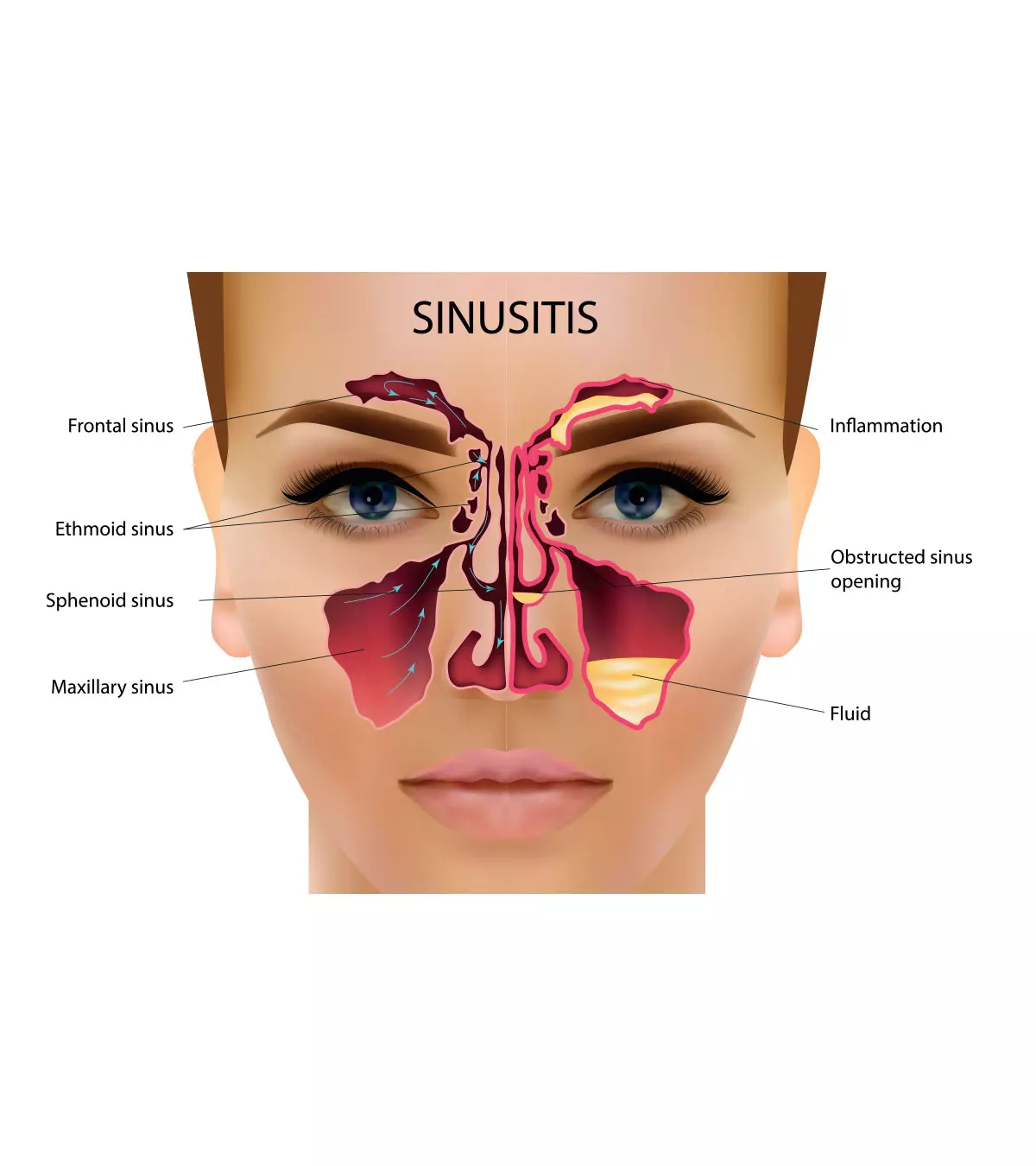
Image: Shutterstock
While it is common for women to experience heartburn during pregnancy, some may continue to experience heartburn when breastfeeding as well. Also known as acid refluxiA digestive disorder in which stomach acid comes back up the food pipe, causing a burning sensation in the chest. , pyrosis, or cardialgia, it is characterized by a burning sensation felt in the center of the chest. It happens due to the reflux of stomach acids into the oral cavityiThe area of the mouth, including the lips, cheeks, gums, and tongue. from the lower end of the esophagus ( food pipe), leading to an unpleasant taste and discomfort (1) (2). It may help to know that simple changes in diet and lifestyle can manage or reduce heartburn symptoms. However, you may even consult your doctor if you have any doubts. Read this post as we talk about the causes, symptoms, prevention, and management of heartburn during pregnancy.
Key Pointers
- Heartburn is common in expectant and nursing mothers and causes a burning sensation in the chest due to reflux of stomach acids into the mouth.
- Heartburn during breastfeeding may be intensified by various factors such as stress, sleep deprivation, weight gain, and dietary choices.
- Nursing while experiencing heartburn is safe and unlikely to harm the baby.
- Heartburn symptoms in nursing mothers may include a bitter taste in the mouth, hoarse voice, and cough.
- Treatment options for heartburn during breastfeeding may include dietary modifications or medications such as antacids, H2-blockers, or proton pump inhibitors prescribed by a doctor.
Does Breastfeeding Cause Heartburn?

Image: IStock
There is no direct correlation between breastfeeding and heartburn. Women who are more prone to heartburn might find their situation aggravated during breastfeeding due to sleep deprivation, stress, pregnancy-induced weight gain, food choices or bending down frequently.
Can You Breastfeed When Having Heartburn?
Yes, it is safe to breastfeed even when you have heartburn. It is unlikely for your baby to face any problems due to your heartburn. If you are concerned, then you may contact your baby’s doctor. In addition, contact your medical provider or registered dietitian to discuss your diet to determine what foods are causing heartburn and to develop a plan that best suits your needs.
Is It Common To Get Heartburn When Breastfeeding?

Image: IStock
There is no proven correlation between the occurrence of heartburn and breastfeeding. Heartburn can occur at any time, including when you are breastfeeding. While the exact prevalence of heartburn in lactating mothers is not known, not all lactating mothers develop heartburn.
Some factors like smoking, high body weight, etc., make a woman more susceptible to heartburn while breastfeeding. Women who experience heartburn during pregnancy might be more prone to developing this discomfort while nursing.
 Quick fact
Quick factSymptoms Of Heartburn While Breastfeeding

Image: IStock
The symptoms of heartburn in breastfeeding mothers are similar to other adults. The following symptoms could indicate heartburn (3) (4).
- Burning in the chest or upper abdomen
- Bitter or sour taste in the mouth
- Coughing
- Hiccups
- Hoarseness of voice
- A feeling of food being stuck in the throat
- Pain in shoulders, upper back or chest pain
These symptoms appear shortly after eating or drinking a beverage and may persist for a few minutes to many hours. These symptoms might worsen while lying down or bending over. Consult your healthcare provider if they persist or worsen.
When To See A Doctor?
Heartburn usually resolves with diet and lifestyle changes. But if it continues to bother you a lot and shows no signs of relief, then you must see a doctor. The doctor may give you suggestions on dietary changes, tell you about the foods to avoid while breastfeeding, and prescribe medicines to control the acid reflux.
What You Can Take For Heartburn When Breastfeeding?

Image: IStock
The doctor might prescribe one of the following medicines to help you with heartburn (2) (5). This information is for educational purposes and should not be considered a replacement for assessment or treatment by a healthcare provider.
1. Antacids
Antacids provide rapid and short-term relief from heartburn. The following are the common contents of the prescribed antacids.
- Hydroxide salts of aluminum, calcium, magnesium, or their combinations
- Alginic acidiA natural carbohydrate used in foods as a thickening, emulsifying, and gelling agent.
- Simethicone
 Point to consider
Point to consider2. Histamine H2- blockers
Ranitidine and famotidine are the commonly prescribed histamine H2-blockers to help with heartburn during lactation.
3. Proton pump inhibitors (PPI)
PPIs are said to be the most effective drugs for chronic acid reflux disease. Pantoprazole and omeprazole are the commonly prescribed PPIs for heartburn during lactation.
4. Other drugs
Depending on your condition and requirements, the doctor might also prescribe medicines containing baclofen to treat your heartburn.
Heartburn that happens during breastfeeding is treated the same way it is treated in non-lactating mothers. The first line of medicines is usually antacids, followed by other options. Do not take any medicines without consulting your doctor.
Causes Of Heartburn When Breastfeeding
The exact cause of heartburn during breastfeeding is not known. However, the following are a few common causes of heartburn among adults (3) (4).
- Obesity
- Stress
- Smoking
- Spicy food like black pepper, mustard, etc.
- Food high in fat
- Foods such as coffee, chocolate, acidic foods like orange juices, tomatoes, grapefruits
- Lying down within two hours of eating
- Bending over frequently to care for the baby
- Consuming caffeinated drinks in large amounts
- Eating large meals that leads to stomach discomfort
- Wearing tight clothes
- Medications like NSAIDs, aspirin, some blood pressure medicines, sedatives, and ibuprofen
 Quick tip
Quick tipPreventing Heartburn When Breastfeeding
Heartburn in lactating women is mostly due to lifestyle and dietary reasons. Therefore, to prevent them, inculcate the following habits (4).
- If you are overweight, try to lose weight
- Eat a healthy, wholesome diet

Image: Shutterstock
- Avoid junk, fried, spicy and unhealthy food
- Do not consume excess caffeinated drinks
- Quit smoking
- Avoid food items that you notice cause heartburn
- Eat small meals
- Avoid lying down after a meal
- Wear loose, comfortable clothes
- Raise your head using pillows or lift the bed with blocks so that you are elevated, thus letting gravity reduce acid reflux
Frequently Asked Questions
1. How long after birth does acid reflux go away?
Research indicates that the symptoms of acid reflux continue to recur for a year after pregnancy (7).
2. Does drinking water help heartburn?
Drinking too much water with a meal or before bed may worsen the feelings of uneasiness or indigestion in the stomach. Therefore, if you feel thirsty during mealtime, take only small sips of water. Doing this will help reduce the symptoms of heartburn (8) (9).
3. What foods neutralize stomach acid immediately?
Yogurt, almonds, ginger, pineapple, milk with honey, and papaya help neutralize stomach acid and alleviate digestive issues, such as heartburn and GERD (9) (10).
4. Which tea is good for acid reflux during pregnancy?
There is no direct correlation between heartburn and breastfeeding. Food choices, weight gain, stress, sleeplessness, or anxiety can cause heartburn when breastfeeding. You may nurse your baby during heartburn since it does not cause any harm to the baby. Avoid caffeinated drinks, spicy foods, and lying down after meals, and follow preventive measures such as eating smaller and more frequent meals and raising your head with pillows to manage heartburn at home. You may visit a doctor if there is no improvement in heartburn after food and lifestyle changes or if it worsens. They may prescribe you lactation-safe medications to prevent acid reflux.
Infographic: Tips On Preventing Heartburn When Breastfeeding
Although more common during pregnancy, breastfeeding mothers may also experience heartburn due to hormonal and lifestyle changes. Nevertheless, there are a few things breastfeeding mothers can do to prevent heartburn, as suggested in the infographic below. If your heartburn does not resolve after following these remedies, speak to your doctor. Illustration: Momjunction Design Team
Illustration: Heartburn While Breastfeeding What Medications Are Safe

Image: Dall·E/MomJunction Design Team
References
1. Definition of “heartburn”; Definition organization
2. Philip O. Anderson, Treating Gastroesophageal Reflux and Heartburn While Breastfeeding; Skaggs School of Pharmacy and Pharmaceutical Sciences, University of California
3. Heartburn and Acid Reflux: What You Need to Know; Cedars-Sinai organization
4. Heartburn (acid reflux) – causes, treatment; Southern Cross
5. Thelin CS, Richter JE, Review article: the management of heartburn during pregnancy and lactation.; US National Library of Medicine
6. Indigestion and Breastfeeding; Breastfeeding Network, UK
7. Enrique Rey et al.; (2007);Gastroesophageal reflux symptoms during and after pregnancy: a longitudinal study; Pubmed
8. Pregnancy and Heartburn; Stanford Medicine
9. Pregnancy Heartburn? 7 Ways to Get Relief; Intermountain Healthcare
10. GERD and Pregnancy; UChicago Medicine
11. Marshmallow; Mount Sinai
Community Experiences
Join the conversation and become a part of our nurturing community! Share your stories, experiences, and insights to connect with fellow parents.
Read full bio of Yinés Garcia-Taylor
Read full bio of Dr. Ritika Shah
Read full bio of Swati Patwal
Read full bio of Ghazia Shah

















